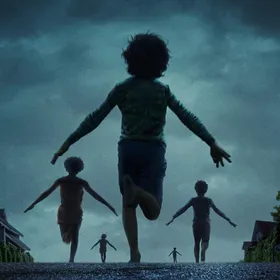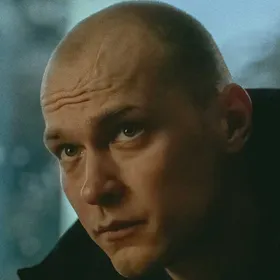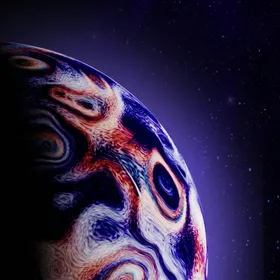This summer, I was doing my volunteer work on Fridays, and since I was out of the house anyway, I took any opportunity I could to catch some blockbusters on opening day. Most of these movies don’t invite much analysis, so this will be a really quick rundown of my thoughts.
Read more…I’m glad to report that my journey with Isaac Asimov’s Foundation series is ending on a positive note. I wasn’t a fan of the previous entry, so I was a little worried about Foundation and Earth. Fortunately, I thought it was a huge improvement. It’s a direct continuation from Foundation’s Edge, so in hindsight, it’s almost as if the previous book was all a setup for the truly compelling part of the story.
I didn’t like the messy parallel plotlines in Foundation’s Edge, and so the main thing I appreciated about this one was its focus on a single group of characters, who are embarking on a single quest. We have Trevize, a member of the Foundation who’s got the weight of the galaxy on his shoulders, and his best bud, Pelorat, a scholar and all-round chill guy. Pelorat’s romantic partner, Bliss, is also part of the crew, and it’s in this three-sided dynamic that I got most of my enjoyment. It’s surprisingly sweet and relatable, how Trevize distrusts Bliss, simply because she’s Pelorat’s new girlfriend, and he doesn’t want his pal to get hurt. Add to that the conflict between Trevize’s and Bliss’s viewpoints about the fate of the galaxy, and you have some real satisfying character development.
The book is by no means perfect… I think it could have used some editing, because the debates between Trevize and Bliss, while thematically relevant, often feel repetitive, hitting the same beats over and over again. And any time a new female character was introduced, I cringed in anticipation of the inevitable tasteless description of her body.
Read more…Apple TV+ continues to be the place for solid shows that don’t seem to get much attention1. Drops of God follows the two potential heirs of a deceased wine magnate’s estate—one, his estranged daughter; the other, his favourite protégé—as they compete in a series of wine-based challenges. Whoever wins will inherit a fortune, which fortune takes the form of an extensive wine collection. The premise sounds crazy, and it didn’t surprise me to learn that the story is adapted from a manga. The comic-booky feeling is even more pronounced when we realize that these people have a preternatural ability to identify the component flavours of wine just by smelling it, and that they must train to perfect their “powers” before the big “battle.” But throughout it all, the show has the gloss and high production value of a prestige drama. Attaching a serious tone to a hokey premise doesn’t usually work for me2, but it does here!
Footnotes
-
See also: Bad Sisters, Pachinko, Servant, Dark Matter, The Big Door Prize. ↩
-
See also: The Moth Diaries, Bones and All. ↩
A movie that I admire and respect more than I enjoy. It’s always nice to see an independent film receive such high accolades, including the Best Picture Oscar of 2024. I really don’t have any criticisms with it, and I think cast and crew did a great job.
It’s more a case of the film not matching my vibe, or maybe vice versa, that I didn’t have the right energy to fully enjoy the viewing experience. The first act, wherein Ani and Vanya have a whirlwind romance, is like watching a series of the most fun parties you’ve ever been to. As an introvert, though, no matter how great a party is, I’m still going to want to leave.
Once the conflict kicks in, and the adults who oversee Vanya’s life threaten to break the couple apart, the movie becomes a frantic comedy of errors. Characters are almost always yelling at each other. It’s funny, in a Curb Your Enthusiasm kind of way, but unlike that show, it’s turned up to 11 for a pretty big chunk of the movie. Larry David at least knew how to mix up the rhythm so that not every scene is a shouting match.
The final chapter of the movie was my favourite: it slows down and gives us a few reflective one-on-one moments between Ani and Igor, one of the “thugs” sent to enforce Vanya’s parents’ wishes. I would have liked the film a lot less if it didn’t have this epilogue, which makes the characters—and we, the viewers—think about everything that just happened, and what it all meant.
Hi!
My experiment with 1 Second Everyday continues, but I must admit I’m running out of steam a little bit. There are days where I feel like nothing noteworthy happens, and I end up taking yet another video of the trees or the sky or something boring. But, at the end of the month, when I go back and review the compiled video, it doesn’t feel boring at all. I guess that’s the whole point of the exercise: it shows you that there’s always something interesting happening, and you just need to look for it.
I combined the videos for May and June, which you can view here.
Read more…Foundation’s Edge was published almost 30 years after the original Foundation trilogy, and you can feel that distance when you’re reading it. The sociological ideas that were at the forefront of the original books are kind of in the background now, replaced by a more conventional sci-fi adventure.
The setup of the novel doubles down on the mind-control conceit introduced in the previous books: Trevize, a councilman of the Foundation, suspects that the Second Foundation is secretly pulling the strings of human history using their “mentalic” powers. At the same time, Gendibal, one of the leaders of the Second Foundation, also suspects that there’s yet another more powerful force out there, mentally controlling them.
For me, this made the mind-control plot device feel tired: if there’s always the possibility that some unseen force is actually calling the shots, then as a reader, I lose track of the characters’ motivations. I also found the two protagonists too similar: they’re both young and arrogant iconoclasts who don’t toe the party line, hunting for a hidden adversary, and to me, the two parallel storylines started to blend together.
Read more…I tried to tell myself not to read this book when I first heard what it was about. I’m already quite cynical about Big Tech, and I thought that this would only entrench my biases further, with no real benefit to my mental health. But I saw it sitting on the shelf at my library and I just couldn’t help myself.
The author, Sarah Wynn-Williams, worked at Facebook in the global policy department, where her responsibility was (ostensibly) to help the company negotiate with countries around the world. She started with the optimism typical of tech companies in the early aughts, believing that she would “make the world a better place.” But over the course of the book, she becomes disillusioned by Facebook’s relentless pursuit of growth and profit, which came at the high cost of creating political instability in countries like Myanmar and ultimately the US.
None of this is very surprising, if you follow the news about social media companies over the last few years. But Wynn-Williams’ position gave her access to the top brass at Facebook, Cheryl Sandberg and Mark Zuckerberg, and she reveals some really bizarre behaviour by the leaders of the company. For example, Zuckerberg once asked her, on a visit to Indonesia, to organize a “gentle mob,” for no apparent reason other than to make himself look cool. These sections were both hard to read and hard to put down, having the feeling of learning some juicy gossip about someone you don’t like. You kind of have to take her word for it, because corroboration from other sources is not really built into the narrative style, but if it’s true, these incidents confirm the old adage that power corrupts.
Based purely on the title, I went into this book expecting something different. Maybe it’s just where my mind is at these days, but I thought it would be a treatise against the democratic backsliding associated with certain world leaders that I won’t name. But it turns out that Dave Meslin’s book is an exploration of the actual governing process, and reads more like a business/management manual, but applied to the systems of democracy. It’s more about logistics than political ideology.
Personally, my experience with democracy is somewhat intermittent: just go vote whenever there’s an election. It’s not very satisfying because it doesn’t feel like you’re contributing much, especially if your choice doesn’t win. Meslin agrees, and puts the blame on the systems and institutions of the government. And from there, he suggests tons of ideas of ways for those systems to change. I had many “a-ha!” moments reading this book, and I appreciated that the book is Canadian through and through, filled with examples and stories from nearby places.
Meslin is an excellent explainer, and simplifies complicated ideas, making them easy to digest. For example, he spends a lengthy chunk of pages describing alternatives to the first-past-the-post electoral system that we use in Canada. It’s kind of a geeky subject, but he makes it really clear how our current voting system leads to polarization and unfair election results.
Read more…A while back, I wrote about my history with e-readers, and highlighted in particular the Pocket app that’s available on Kobo devices. I named it “Kobo’s killer app,” because I think that e-readers hit their sweet spot with long articles: for shorter pieces, I can live with the slight eyestrain of reading on a phone or computer screen, and for full-length books, I’ll always prefer a physical copy. For me, e-readers are perfect for the in-between articles and essays that can be read in 15-30 minutes, and Pocket is the key piece of software that makes it happen. That is, until now.
Sadly, the Pocket service will be shutting down. There are other alternatives for saving articles, but there’s no (easy) way to access them on the Kobo.
What to do? Luckily, the open-source community comes to the rescue.
Read more…By coincidence, I experienced a funny bit of synergy by reading this book and watching the show Bad Sisters at the same time. They’re both murder mysteries set in Ireland, and bled together slightly in my mind. I started to imagine the detective character in the book with the same appearance as the actor in the series. And because my ear had been hearing the spoken dialogue, I was able to mentally approximate the sound of the Irish accent while reading.
The novel is told from the perspective of Toby, and before the main mystery even kicks in, he gets assaulted by burglers breaking into his home, leaving him with a head injury. As he’s recovering at his fancy family home, his cousin’s kids accidentally discover a skeleton inside a tree in the yard. It shouldn’t be too much of a spoiler to say that the body belongs to someone from Toby’s high school days1, and various members of his family—his uncle and his cousins—all become suspects. Including Toby himself.
Read more…








